When I think about shaping young minds, Walden University’s Early Childhood Education program stands out as a beacon of innovation and excellence. This program isn’t just about teaching; it’s about fostering a nurturing environment where children can thrive. With a focus on developmentally appropriate practices, I’ve found that it prepares educators to meet the diverse needs of today’s classrooms.
As I delve deeper into the curriculum, it’s clear that Walden emphasizes both theory and practical application. This blend equips future educators with the skills to create engaging learning experiences. Whether you’re just starting your journey or looking to advance your career, Walden’s commitment to social change and community impact resonates deeply with me. Let’s explore how this program can transform your approach to early childhood education and make a lasting difference in the lives of children.
Key Takeaways
- Innovative Curriculum: Walden University’s Early Childhood Education program integrates developmentally appropriate practices with theoretical knowledge to prepare educators for diverse classroom environments.
- Key Areas of Focus: The program emphasizes essential elements such as child development, curriculum design, family engagement, culturally responsive teaching, and effective assessment strategies.
- Flexible Learning Formats: Students can choose from fully online, hybrid, or accelerated course options, enabling them to balance their education with professional and personal commitments.
- Qualified Faculty Support: Experienced instructors with advanced degrees provide practical insights and ongoing support to student success, ensuring that learning is applicable to real-world scenarios.
- Comprehensive Student Services: Walden offers academic advising, technical support, tutoring, and mental health resources, fostering a conducive environment for educational growth.
- Diverse Career Opportunities: Graduates can pursue various roles in early childhood education, including preschool teachers, directors, early intervention specialists, and curriculum developers, making a significant impact in their communities.
Walden University Early Childhood Education
Walden University’s Early Childhood Education program emphasizes innovative teaching practices and a commitment to nurturing young learners. I appreciate how this program integrates developmentally appropriate practices that address the varied needs of children. The curriculum blends academic theory with hands-on experiences, preparing educators for real-world classroom challenges.
Key components of the program include:
- Curriculum Design: Courses focus on creating effective lesson plans that align with early childhood standards.
- Child Development: Students explore different stages of child development, promoting a deeper understanding of the learning process.
- Family Engagement: The program encourages forming partnerships with families, recognizing their vital role in a child’s education.
- Culturally Responsive Teaching: Instruction includes techniques to address diverse cultural backgrounds, fostering inclusive learning environments.
- Assessment Strategies: Educators learn to implement various assessment methods to gauge children’s progress and adapt teaching methods accordingly.
The program’s online format provides flexibility, catering to working professionals eager to advance their careers. I see the potential for Walden’s graduates to influence early childhood education practices positively and effect change in their communities.
Program Structure

The Early Childhood Education program at Walden University features a well-crafted structure that ensures comprehensive learning for aspiring educators. This program emphasizes a blend of theoretical knowledge and practical application, preparing graduates to excel in diverse classroom environments.
Curriculum Highlights
Curriculum highlights focus on essential elements that shape a strong foundation in early childhood education. Core courses cover vital topics, including:
- Child Development: Studies the growth stages from birth to age eight, emphasizing cognitive, social, and emotional development.
- Curriculum Design: Equips educators with tools to create engaging, developmentally appropriate learning experiences that align with national standards.
- Family Engagement: Explores strategies to foster collaboration with families, enhancing children’s learning and development.
- Culturally Responsive Teaching: Provides techniques to address the diverse backgrounds of students, promoting inclusivity in the classroom.
- Assessment Methods: Engages educators in effective ways to monitor and assess children’s progress through various tools and strategies.
Course Format Options
Course format options offer flexibility to accommodate busy professionals. Formats include:
- Online Learning: Provides an entirely online experience, allowing access to coursework from anywhere, making it easier to balance studies with work and personal life.
- Hybrid Learning: Combines online coursework with some in-person sessions, enhancing engagement and community building among students.
- Accelerated Programs: Offers fast-track options for those aiming to complete their degrees more quickly, with courses available in shorter terms.
These formats ensure that I can pursue my education without compromising my professional and personal commitments.
Faculty and Support

Walden University’s Early Childhood Education program boasts a team of highly qualified faculty members dedicated to student success. Faculty expertise ensures that students receive guidance from experienced professionals who understand the nuances of early childhood education.
Instructor Qualifications
Instructors at Walden University hold advanced degrees in early childhood education, child development, or closely related fields. Many faculty members bring extensive experience in educational settings, including teaching, administration, and curriculum development. This breadth of knowledge allows them to provide practical insights alongside academic rigor. Instructors also engage in ongoing research to stay current with trends and innovations, enriching the learning experience for students. Their commitment to teaching ensures that I receive applicable and relevant information throughout the program.
Student Support Services
Walden provides various student support services to enhance the educational experience. Academic advising is readily available to help students select courses and navigate their academic pathways. Technical support ensures that I can access online resources seamlessly, with assistance for any technological issues. Additionally, the university offers tutoring services focused on writing and research skills vital for success in early childhood education. Mental health resources are also available, addressing individual needs and promoting overall well-being. These comprehensive support services contribute to a positive learning environment, facilitating my journey toward becoming an effective educator.
Admission Requirements

Walden University’s Early Childhood Education program has specific admission requirements to ensure candidates meet the necessary standards for success. Key aspects include eligibility criteria and the application process.
Eligibility Criteria
To qualify for the Early Childhood Education program, applicants must hold a high school diploma or equivalent. A minimum GPA of 2.0 is often required for undergraduate programs. For graduate programs, a bachelor’s degree from an accredited institution is essential, along with a minimum GPA of 3.0 on a 4.0 scale. Applicants may also need to submit official transcripts from all previous educational institutions. Relevant professional experience in education or child development can enhance an application but isn’t mandatory. Additionally, applicants for specific licensure tracks may need to provide documentation of prior teaching experience or a valid teaching license.
Application Process
The application process for Walden University begins with completing an online application form. I must provide personal information, educational history, and any relevant work experience. Along with the application form, I must submit a personal statement that outlines my goals and motivation for pursuing an Early Childhood Education degree. Two letters of recommendation from individuals who can speak to my strengths and qualifications are also required. After submitting the application, I may need to engage in a brief interview with admissions staff. Once reviewed, I’ll receive a decision regarding my acceptance into the program.
Career Outcomes
Graduates of Walden University’s Early Childhood Education program can pursue various rewarding career paths within the field. This program prepares aspiring educators with the skills needed to excel in diverse roles focused on early childhood development and educational leadership.
Job Opportunities
- Preschool Teacher: Many graduates work directly with young children in preschool settings, implementing curricula that promote learning and development.
- Child Care Center Director: Leadership positions include managing child care centers, ensuring compliance with regulations, and fostering a positive environment for children and staff.
- Early Intervention Specialist: Working with children with developmental delays, these specialists provide targeted support to enhance learning outcomes.
- Curriculum Developer: Graduates may design and evaluate educational programs, aligning them with early childhood standards and best practices.
- Family Support Specialist: These professionals engage families in the educational process, providing resources and support to enhance children’s development at home.
- Special Education Teacher: Teaching children with special needs requires specialized training and a commitment to tailoring educational approaches to individual learning styles.
- Maria Johnson: After graduating, Maria became a preschool teacher at a local child care center, known for her innovative curriculum that integrates play-based learning strategies.
- James Smith: With a passion for leadership, James took a director position at a child care facility, where he’s implemented successful staff development programs that improved teacher retention.
- Emily Davis: As an early intervention specialist, Emily collaborates with families and educators to create individualized education plans that support children with diverse needs.
- Robert Lee: Working as a curriculum developer, Robert contributes to the creation of educational resources for public schools that enhance early learning experiences.
- Lisa Chen: Lisa’s role as a family support specialist allows her to connect families with crucial community resources, significantly impacting children’s learning environments.
These diverse paths exemplify the numerous opportunities available to graduates of Walden University’s Early Childhood Education program, showcasing the potential to make meaningful contributions to the field.
Program Insights
Walden University’s Early Childhood Education program stands out for its commitment to nurturing future educators. I’ve seen firsthand how the curriculum not only prepares students for the classroom but also instills a passion for making a difference in children’s lives.
With flexible learning options and a focus on practical application, this program empowers graduates to tackle the challenges of modern education. The dedicated faculty and robust support services further enhance the experience, ensuring that students feel equipped and confident as they embark on their careers.
As I reflect on the impact of this program, I’m excited about the positive changes its graduates will bring to early childhood education and their communities. The journey toward becoming an effective educator starts here, and the possibilities are truly endless.

